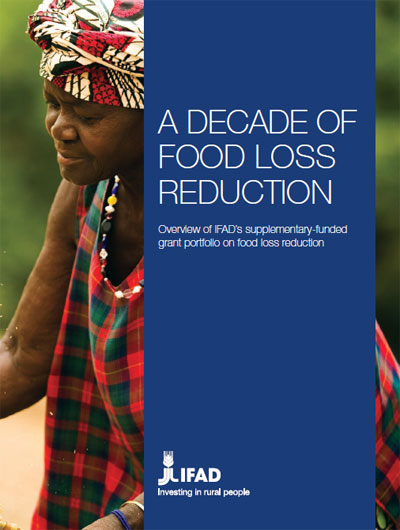A decade of food loss reduction
A decade of food loss reduction
An overview of IFAD’s supplementary-funded grant portfolio on food loss reduction.
According to recent estimates, 14 per cent of the world’s food production is lost before it reaches the consumer. Food losses disproportionately affect developing countries, threatening people’s livelihoods, especially those dependent on agriculture.
The 2030 Agenda for Sustainable Development identifies the reduction of these losses as a key driver for achieving sustainable food systems that ensure everyone is adequately fed while protecting the environment. Sustainable Development Goal (SDG) Target 12.3, in particular, pledges “to reduce food losses along production and supply chains, including post-harvest losses” by 2030.
As a specialized agency of the United Nations dedicated to eradicating rural poverty and as a member of the Champions 12.3 coalition, IFAD is fully committed to achieving this target. For IFAD, reducing food losses is a key way to improve food security and reduce hunger, especially in rural areas, while also creating income opportunities for producers and small rural businesses.
Considering the large amounts of land, water, labour and inputs used to produce lost food, food loss reduction also contributes to reducing natural resource use and the environmental impact of food production.
